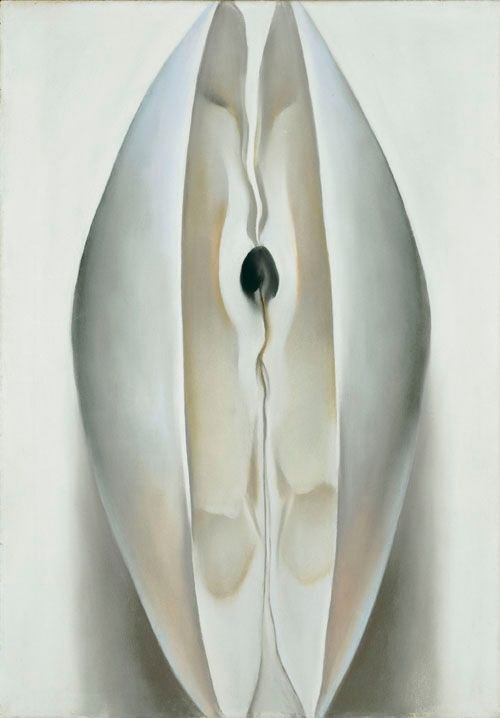It may seem a bit saucy to write about something that most people don’t like to think about. They like to talk about it even less, but 52% of us have them, and I think it is in our best interest to know what is going on with them and keep them healthy. And when I say “them” I mean specifically the vagina (we can cover the other lady parts later). Men, I don’t want to lose you here, you need to know this too. Have a mother? A sister? Daughter? Wife or girlfriend? Then knowing some basic information about vaginal health and disease will benefit you and all the ladies in your life.

Gynaecology in Chinese Medicine
Gynaecology in Chinese medicine has a long history. The earliest writings on the subject date back to the Shang dynasty, which was between 1500-1000 BC. As a result, Chinese medicine is extremely effective for dealing with the gamut of gynaecological problems women face. It was because of terrible problems with my periods as a teenager that I found Chinese medicine and after years of being told “I would just have to deal with it”, acupuncture and herbs resolved them after a few months of treatment. So, I am speaking from experience, mine and the many, many women I have seen in clinic.
The way that Chinese medicine looks at gynaecology, and really the entire body is completely different than what we are used to in the West, so this is probably a good place to start. Chinese medicine believes that puberty is a particularly important time for a young girl and problems she experiences in these years will have lasting effects throughout her life. Living in a cold, damp climate can cause cold and dampness to invade the body and cause problems, excessive physical labour as a young person, and experiencing many emotional upsets are all factors that can contribute to problems both during puberty and later in a woman’s life.
The periods are considered an especially vulnerable time for a woman, as the uterus is seen to be “open” allowing menstruation to occur. There is also, because of the loss of blood, a relative blood deficiency and many problems with menstruation are influenced by these factors. Some other main factors that cause gynaecological problems are:
- Pathogenic factors from the outside, like heat, cold, dampness and wind (viruses, bacteria, etc..)
- Excessive physical work or exercise
- Emotional stress (emotions like sadness and grief, worry and anger, fear, shock and guilt are a significant factor in many gynaecological problems)
- Diet and nutrition (hugely important always, but especially for women with gynaecological issues)
- Overwork and exhaustion (which is so common in our culture)
- Pregnancy and childbirth (having too many pregnancies too close together does not give the body time to recover)
- Too much or too little sexual activity (you may be wondering, really? Yes. For more info, read this: Can too much sex be bad for your health? Sex and Chinese Medicine)
- The birth control pill
- Surgery and hysterectomy
- There is a huge emphasis for women to take care during and immediately after their periods, being sure not to become overly emotional (which may seem counterintuitive, as this seems to be the time when most women feel exactly that), not to participate in too much strenuous physical labour, especially heavy lifting, they should avoid cold food, and be careful to avoid cold, damp places as it more easily enters the body at this time.
Prevention and Hygiene

Without an in depth discussion on women’s physiology and the aetiology (the cause of a disease) of gynaecological diseases, there are a few simple rules that women can follow to keep all of their lady parts healthy and prevent the problems will we discuss later.
- Don’t have sex during your periods – this is seen to cause stagnation in the uterus which can lead to problems later on and heavy periods
- Avoid cold, damp environments, especially during your periods – this will cause cold and damp to invade the uterus when it is particularly vulnerable and can lead to problems
- Don’t work too hard or for long hours during the periods – overwork easily leads to deficiency at this vulnerable time
- Don’t have sex with a full bladder – this can lead to stagnation in both the uterus and the bladder
- No heavy lifting during or immediately after the period – this can lead to qi sinking which, if it progresses can lead to prolapse of organs
- Refrain from being angry during the period, as it may cause the period to stop
- Don’t drink alcohol during the period – this can cause circulation problems in the limbs
- Eat foods that nourish blood during the periods such as – Peanuts, carrots, spinach, chicken, egg yolks, wood ear mushroom and Chinese red dates (we have a lot of wonderful Chinese medicine recipes here)
- Don’t be exposed to cold after sex – as cold can easily invade the uterus at this time
- Avoid cold foods and liquids during the periods – as these foods can cause painful periods due to invasion of cold
Vaginal Discharge
Women often wonder if vaginal discharge is normal. Yes, it is. The way Chinese medicine defines it is that a slight vaginal discharge, that increases in volume and viscosity around ovulation (mid cycle) and is thin and colourless with no smell is normal. Therefore, discharge that is a colour (white, yellow, red, brown, green), thick with a strong smell is considered pathological. Some of the reasons to be having excessive vaginal discharge are below.
Diet
Chinese medicine puts a huge emphasis on what we eat, and how that can contribute to imbalances. This is especially true with gynaecological problems and the big three are greasy foods, dairy and overconsumption of sugar. Now, in an ancient Chinese diet these would not be things you would eat a lot of anyways, but we certainly do now, especially in the West. My best advice would always be to eat food that is as close as possible to how it grown in (or on) the earth. Fresh fruits and vegetables are best. Organic if possible. As little sugar, refined oils, flours and salts as possible and if you must eat processed foods, do so sparingly. This advice goes double if you are healing from an illness.
Connected to diet is also eating at regular times. Chinese medicine theory states that the regularity with which we eat is almost as important at what we eat. The body likes routine, especially when it comes to food, and eating at random hours which change constantly puts stress on the Spleen and can lead to dampness which can lead to excessive vaginal discharge.
Excessive Physical Labour and Overwork
People who have very physically demanding jobs like people who work construction, or are firefighters or orderlies can be prone to Spleen deficiency. The same is true if you work long hours without adequate rest, eating properly and not getting enough sleep. Does this sound like everyone you know? This is a prevalent problem in our culture and many illnesses are a result of this stressful, fast paced lifestyle. This overwork with lack of rest to recuperate easily leads to Spleen deficiency which in turn leads to dampness, and… excessive vaginal discharge.
Emotions
The emotions of the Liver – anger, frustration and resentment, and the emotions of the Spleen – worry and over thinking can cause Liver Qi to become “stuck” or stagnant, and stagnant Liver Qi leads to many gynaecological problems. Worry and over thinking (which we do so much in our culture) cause Spleen Qi deficiency which leads to dampness. The combination of dampness and Liver Qi stagnation (which left untreated leads to heat) settles in the Liver channel which happens to wind around the genitals, and causes excessive vaginal discharge.

Diet is a very important part of vaginal health
Vaginal Itching
Vaginal itching is defined as persistent itching of the vagina which may also be accompanied by excessive vaginal discharge. To see a definition of excessive vaginal discharge, see he section above.
There are many factors that contribute to gynaecological problems in Chinese medicine. Often the Liver and Spleen are involved, so trying to keep both these organs healthy is a good first step in preventing imbalance in those organs which may lead to gynaecological problems down the road. Below is a list of factors that can lead to vaginal itching in Chinese medicine.
Emotional Problems
Chinese medicine sees the emotions are being an important part of health. They become pathological when they are either felt intensely, as in a sudden death which can lead to shock; felt in a prolonged way without easing, such as after the death of a loved one; or not felt at all because they are being repressed or unexpressed. Each organ in Chinese medicine has an emotion that is associated with it, and the two most common organs that contribute to gynaecological problems are the Liver and the Spleen. The Liver is associated with anger – which may manifest as resentment, frustration or when extreme, rage. The Spleen is associated with worry and over thinking, two things that as a culture, we tend to do a lot. The Liver in particular is at the root of many gynaecological problems. If Liver Qi stagnates, or becomes “stuck” it can, over time, turn to heat and that heat affects the Liver meridian which happens to run through the external genitalia, leading to itching. The more heat there is, the more intense the itching becomes.
Diet
We all know how Chinese medicine uses food to keep the body in balance and help to cure it if diseased. As a result, food can also be the cause of a problem, and certainly contribute to it if an imbalance is already present. Diet is a big contributor to gynaecological problems in the West, because the foods that cause the problems are a huge part of our diet. The main culprits are greasy foods and dairy products. If you are prone to gynaecological problems like yeast infections (candida infections) then take a look at your diet and try to cut back on greasy foods and dairy as they are a prominent factor. When it comes to diet, the regularity of eating is also important in Chinese medicine. The body likes routine, and we live such hectic lives, it is pretty normal for people to go all day without eating and then have a huge meal in the evenings. This puts a huge burden on the Spleen and can lead to problems like dampness. When combined with emotional issues, heat in the Liver combines with the dampness in the lower burner and forms damp heat which causes vaginal itching. The more heat there is, the more intense the itching becomes. So, express those emotions, and try to limit dairy and greasy foods.
Excess Physical Labour
Excess physical work can manifest as vaginal itching in a couple of ways. People with very physical jobs, or people who train intensely can, over time, deplete their Spleen. If this physical work is carried out without sufficient rest the Spleen becomes deficient and is prone to dampness which can cause vaginal itching. The other way is if people work very long hours without eating properly or getting adequate sleep it will injure Liver and Kidney Yin. A Yin deficiency will ultimately lead to a blood deficiency which can lead to vaginal itching.
Vulvar Sores
The vulva refers to the external vagina including the labia, clitoris and entrance to the vagina. Sores on the vulva can be painful, hot, itchy and/or have a discharge of pus. Vulvar sores may be categorized as itching, swelling, pain, lumps, pus and excessive vaginal discharge. These symptoms may also be accompanied by systemic symptoms such as shivers, fever, weakness, constipation, thirst, dark urine and abdominal distension.
In Chinese medicine, vulvar sores can arise for many reasons. The main ones are poor and irregular diet, emotional strain and stress, or an invasion of dampness and cold (especially during or immediately after the periods, or after childbirth).
Acupuncture and Chinese herbs are very effective for treating vulvar sores, but it is important to obtain a correct diagnosis to ascertain the reason for the sores so that it can be corrected and therefore will not return. It is also important to determine if the vulvar sores may be due to certain sexually transmitted diseases or neoplasms. The vulva is the fourth most common site of gynaecological neoplasia. The majority of gynaecological neoplasms are diagnosed in women in their sixties and seventies, and 15% occur in women under forty. Gynaecological neoplasms have been associated with the HPV virus (human papiloma virus). The symptoms of vulvar neoplasm are pruritus, erythema, and swelling. If you suspect an STD or neoplasm, be sure to see your doctor.
And last but not least, some basics to keep the lady parts clean and in good health. Wear cotton underwear which will keep all those bits clean and dry (other synthetic fabrics don’t breathe and can cause problems especially in damp, hot weather). If you can, don’t wear anything (on those parts anyways) to bed so that they get a chance to breathe. When bathing be sure to dry the lady parts very well as they tend to heat and heat and sweat can brew into a less than awesome situation. Most of all, be mindful of your lady parts and pay attention to what is happening down there. This article lists some of the more common issues, but if there is anything that you are worried about, go see a doctor, homeopath, naturopath or acupuncturist – the one you feel most comfortable talking to about these things and make sure you get it sorted out. Peace of mind is a good thing, for any of our parts.
By Emma Suttie, D.Ac, AP
from ChineseMedicineLiving.com
*For more information about Chinese Medicine, or lady parts
please visit ChineseMedicineLiving.com
See our previous article about meditation click here

. . . . . . . . . . . . . . . . . . . . . . . . . . . . .
References
Obstetrics and Gynecology in Chinese Medicine by Giovanni Maciocia
Hi! I am a robot. I just upvoted you! I found similar content that readers might be interested in:
https://www.chinesemedicineliving.com/eastern-philosophy/vaginal-health-womens-health-in-chinese-medicine/
Downvoting a post can decrease pending rewards and make it less visible. Common reasons:
Submit
Hi robot, thanks for visiting my website! Yes, the article you linked to is one I wrote and is on my website - chinesemedicineliving.com. :)
Downvoting a post can decrease pending rewards and make it less visible. Common reasons:
Submit
Congratulations @chinesemedicine! You have completed some achievement on Steemit and have been rewarded with new badge(s) :
Click on any badge to view your own Board of Honor on SteemitBoard.
For more information about SteemitBoard, click here
If you no longer want to receive notifications, reply to this comment with the word
STOPDownvoting a post can decrease pending rewards and make it less visible. Common reasons:
Submit
Sneaky Ninja Attack! You have just been defended with a 1.82% upvote!
I was summoned by @mattbb. I have done their bidding and now I will vanish...
woosh
A portion of the proceeds from your bid was used in support of youarehope and tarc.
Abuse Policy
Rules
How to use Sneaky Ninja
How it works
Victim of grumpycat?
Downvoting a post can decrease pending rewards and make it less visible. Common reasons:
Submit
This article is an eye opener, it elucidate some of the things we thought were actually not normal.
Downvoting a post can decrease pending rewards and make it less visible. Common reasons:
Submit
That's great, so glad it was helpful! Thank you for your upvote, it is muchly appreciated and needed to keep our website going! :)
Downvoting a post can decrease pending rewards and make it less visible. Common reasons:
Submit